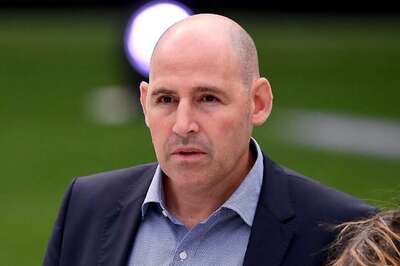
views
It’s human tendency to choose one product over the other, simply because it carries a 'guarantee'.
For a few years now, investments (some unit linked insurance plans and mutual fund schemes) have been coming with a guarantee. But you probably didn't pay heed, because the stock markets were booming and you didn't need a guarantee.
But now that the tide has turned, you will find mutual fund agents and insurance advisors flocking to you with guaranteed schemes.
But before your agent lures you into buying a capital guaranteed product (CGP), go through the following dialogue that with a CGP.
Q: "Hello. I hear you are a capital guaranteed scheme."
CGP: "Yes, you heard that right!"
Q: "So, how do you function?"
CGP: "Quite simple! You invest your money – any amount you wish to. I guarantee that your capital will remain intact, even in the worse case scenario, that is, you get your money back 100 per cent. Plus, you can even earn returns, no matter what the stock market does."
Q: "Are you going to invest my money in the stock market?"
CGP: "Yes"
Q:"Then how can you give me a guarantee? Stock markets are so volatile after all."
CGP: "Actually, we invest your money based on the number of years that the product is offered for. For instance, assume you invest Rs 100 for five years. I divide your money in a 70:30 ratio.
I invest the 70 per cent in a debt instrument, that is, bonds etc. Assume that these bonds give a return of 9 per cent per annum, that is Rs 6.3 (Rs 70 x 9 per cent). So, in five years, I make Rs 31.5 for you.
So, when I add the Rs 70 of your investment + Rs 31.5, you get a total of Rs 101.5. This is more than your initial investment of Rs 100. This way I ensure that your capital is protected."
Q: "And what about the balance 30 per cent?"
CGP: "I invest that money in the stock market. So, if in five years time the stock market doubles, so does your investment. Hence, your Rs 30 becomes Rs 60 and you make a neat profit of Rs 30. Thus, in total you have an opportunity to earn Rs 61.5 (Rs 31.5 + Rs 30) on an investment of Rs 100 in the best case scenario and Rs 31.5 in the worse case scenario. Sounds good?"
Q: "No it does not. It's pathetic!"
CGP: "Why not?"
Q: "Getting Rs 161.5 in five years time is a return of 10.06 per cent on a compounded basis. And you say that is the best case scenario. In a worst case scenario, I do not earn any returns. I just get my capital back. Now, If I invest the entire Rs 100 into debt, I will make a guaranteed Rs 145 at the end of five years (assuming a 9 per cent return per annum). And that's my worst case scenario!
Furthermore, If you are sure that the markets will double in five years, then i can invest all my Rs 100 in the market and get Rs 200 at the end of that period. So, my range of returns is Rs 145 to Rs 200 versus your range of Rs 100 to Rs 161.5. Why should I consider your proposition when i can make more money by investing elsewhere?"
CGP: "Well, you don’t want to choose stocks yourself and lose money right?"
Q:"I can invest in good equity mutual funds or perhaps an exchange traded fund which will give me market linked returns. I can even stick to blue chip shares. I have so many options."
CGP: "What is the guarantee that you will be right? Plus, do you have the time?"
Q: "Well, i can put my money in two parts - in a diversified equity mutual fund and a debt mutual fund. Also, i can choose balanced funds which invest in debt and equity and entail lower risks."
CGP: "You can choose but you are not assured of anything."
Q: "Now that’s all marketing talk. Principally, why would I lose money if I hold for a long time, that is, five years. A balanced fund with a good track record is all I need. All this talk of CGP is really not worth my while."
CGP is left speechless and simply leaves.
Writer’s advice: Scrupulous agents might pitch a capital guarantee scheme to you, especially in these volatile times. Shut your ears and invest in a good diversified equity scheme and ETFs for the long term.
Disclaimer: The contents of the above article are the intellectual property and copyright of the author, Kartik Jhaveri. No part may be used or reproduced in any form or manner. If you choose to act upon the information contained in the above article it is at your own risk. This article is purely educative and you are strongly advised to consult an expert prior to taking any significant decision.


















Comments
0 comment